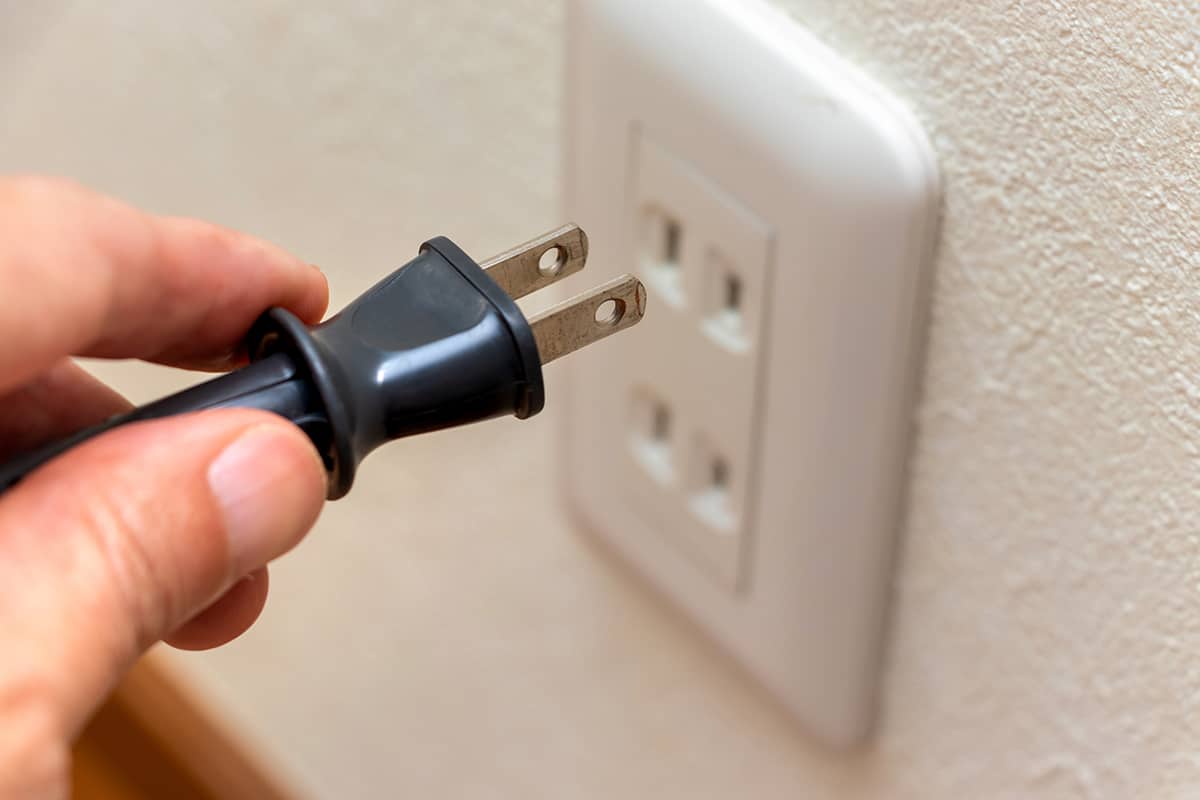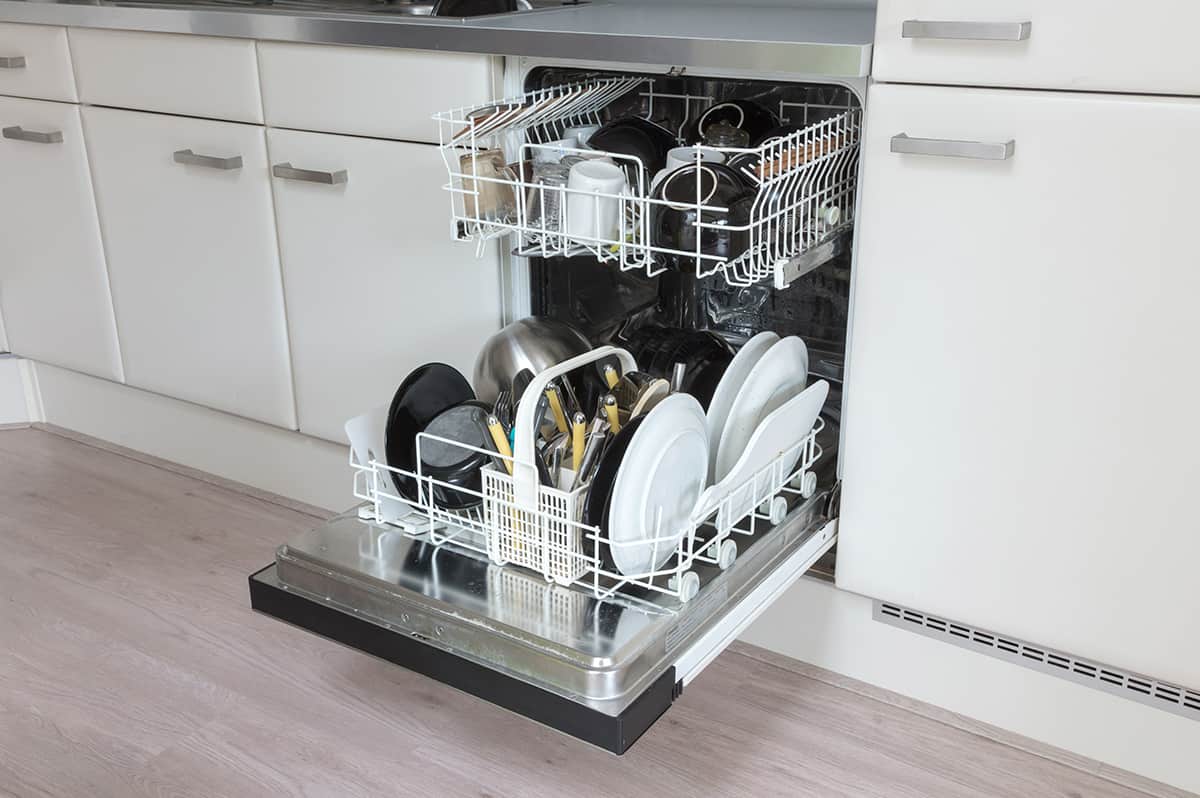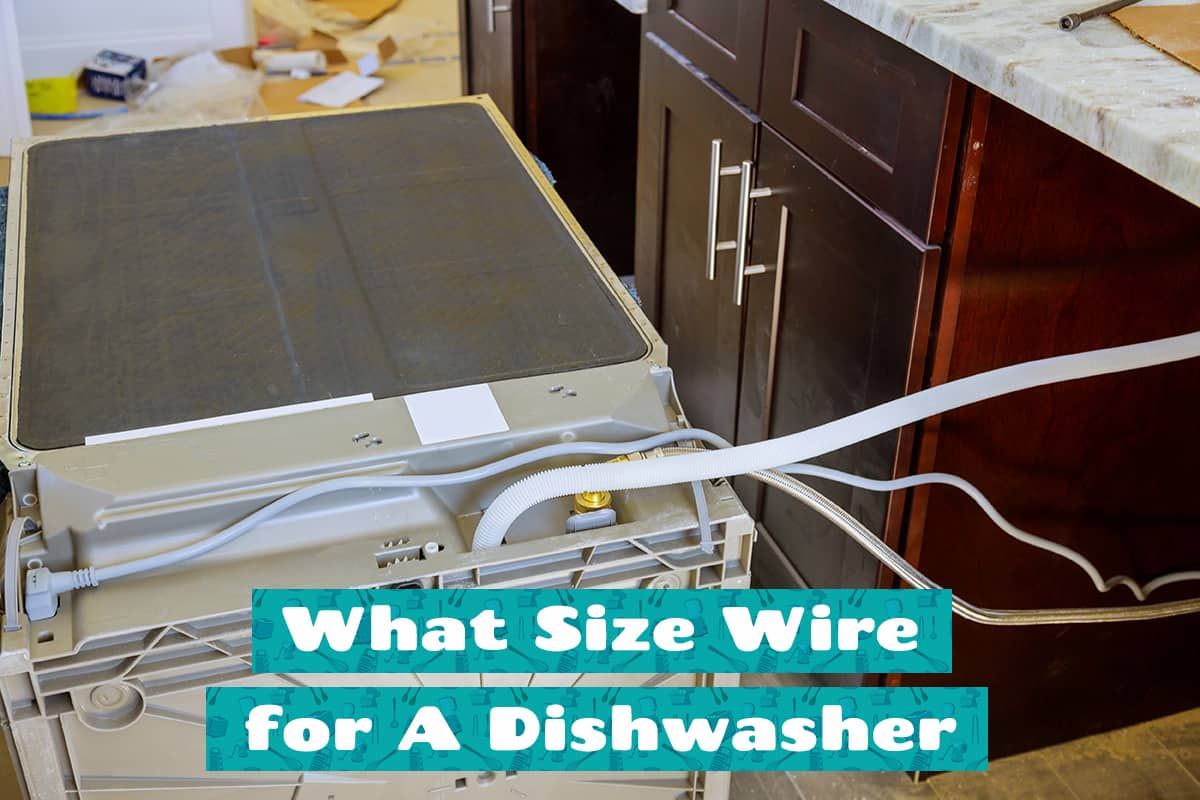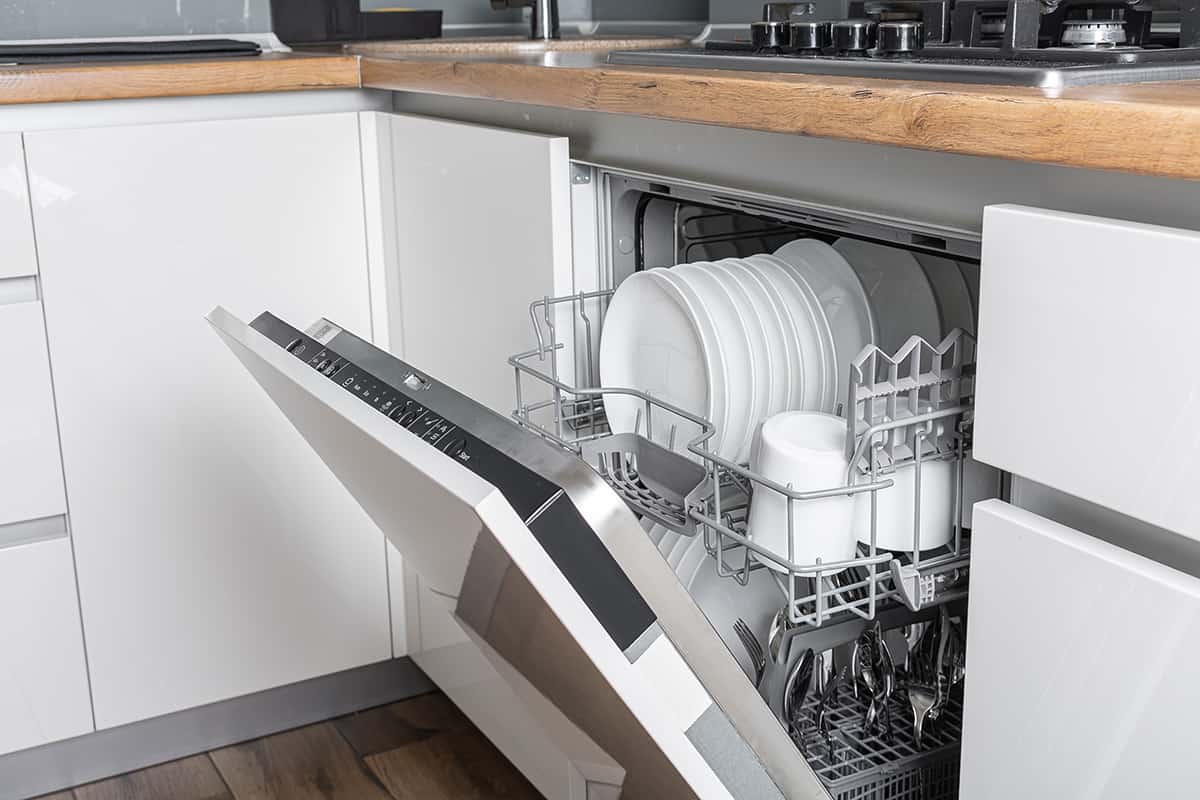When we think about setting up a kitchen, we often focus on the visible parts – the oven, fridge, or stylish cabinets. But the hidden details matter too, like where to place the electrical outlet for appliances like a dishwasher. The height of a dishwasher outlet plays a crucial role in safety and functionality, but it’s something many overlook. This placement isn’t random – there are guidelines and standards that help keep your kitchen safe.
The outlet for a dishwasher should be installed 6 to 12 inches above the floor and placed on the side of the dishwasher cavity.
In this article, we’ll dive deeper into why the height of a dishwasher outlet matters. We’ll talk about the standards that guide this height and what can go wrong if it’s not correctly positioned.
Power Needs of a Typical Dishwasher
Dishwashers use electricity for several tasks. They need the power to heat water, control the spray arms, open the detergent dispenser, and run the drain pump. Most dishwashers run on a standard 120-volt outlet, the same kind you’d use for a lamp or a TV.
However, dishwashers draw more current, typically 10 to 15 amps. That’s why they need a dedicated circuit in your home’s electrical system, meaning they have their own breaker in the electrical panel.
But before you even think about plugging in your dishwasher, you first need to adhere to the rules of safety regarding its outlet. Yeah, it gets that deep!
Standard Dishwasher Outlet Height
When it comes to dishwasher outlets, height matters. But what is the ‘right’ height? The answer is determined by various factors, including safety considerations, ease of access, and, importantly, the standards set by regulatory bodies. Let’s take a closer look.
National Electrical Code (NEC) Requirements
The NEC is a set of guidelines in the United States that helps ensure the safe installation of electrical wiring and equipment. Although the NEC doesn’t provide a specific height for dishwasher outlets, it does state that outlets should be installed in a way that avoids physical damage to the wiring system.
This general rule has led to the common practice of placing the dishwasher outlet 6 to 12 inches above the floor. This height keeps the outlet and wiring safe from potential water damage while still allowing easy access for plugging and unplugging the dishwasher.
International Standards for Dishwasher Outlet Heights
Outside the United States, different countries have their own electrical codes. For example, in Canada, the Canadian Electrical Code (CEC) is followed, which, like the NEC, does not specify a particular height for dishwasher outlets. However, the same practical height of 6 to 12 inches above the floor is commonly followed.
In the United Kingdom, the British Standard BS 7671 is used. It requires that outlets in areas potentially affected by water, such as kitchens, be installed at a minimum height of about 11.8 inches (30 cm) from the floor. This standard aims to reduce the risk of electrical accidents involving water.
Potential Problems with Incorrect Dishwasher Outlet Height

Imagine trying to plug your phone charger into a socket that’s either too high to reach or too low that it almost touches the floor. The same goes for your dishwasher. If the outlet is too high or too low, it can cause various problems. Let’s take a look at these issues in detail.
Safety Hazards
The most significant concern with an incorrectly placed dishwasher outlet is safety. Electricity and water are a dangerous combination. If the outlet is too low, there’s a risk that water could splash or spill from the dishwasher or sink and reach the outlet, potentially causing a short circuit or even a fire.
On the other hand, if the outlet is too high, it might be located within the cavity where the dishwasher slides into, which is against safety regulations as it can cause electrical shocks.
Damage to Dishwasher and Wiring
An incorrectly placed outlet can lead to strain on the dishwasher’s power cord and the electrical wiring. If the outlet is too low, the power cord may need to bend sharply or stretch to reach it, which can damage the cord over time. If the outlet is too high, the cord may get pinched or damaged when the dishwasher is installed.
Impact on Dishwasher Performance
In addition to safety and damage concerns, the position of the outlet can impact the dishwasher’s performance. If the outlet is too high, the dishwasher’s power cord may not reach it, requiring an extension cord. However, using an extension cord with a dishwasher is generally not recommended as it can lead to power loss, affecting the dishwasher’s performance.
Professional vs. DIY Dishwasher Outlet Installation
When it comes to installing a dishwasher outlet, you might be tempted to do it yourself. The process involves handling electrical wires and complying with safety standards.
Professional Installation
Professional electricians have the training and experience to handle electrical installations safely and correctly. They know the ins and outs of electrical codes and can ensure your dishwasher outlet is installed at the right height and in the safest location.
Pros of professional installation
- Safety—Electricians know how to handle electrical installations safely, minimizing the risk of electrical shocks or fires.
- Code compliance—They are familiar with local and national electrical codes and can ensure your installation is compliant.
- Quality—They can ensure the outlet is securely installed and the wiring is correctly connected.
- Time-saving—Hiring a professional can save you time, as they can typically complete the installation quicker due to their experience.
Cons of Professional Installation
- Cost—Hiring a professional electrician can be expensive, especially for a small job like installing a single outlet.
- Availability—You might have to schedule the installation in advance based on the electrician’s availability.
DIY Installation
If you’re handy around the house, you might consider installing the dishwasher outlet yourself like this video. However, you first need to understand that working with electricity can be dangerous if you’re not properly trained.
Pros of DIY installation:
- Cost-saving—Doing it yourself can save you the cost of hiring a professional.
- Flexibility—You can do the installation at your own pace and on your own schedule.
Cons of DIY installation
- Safety risks—If you’re not experienced with electrical work, you could risk electrical shocks or fires.
- Potential code violations—You might unintentionally violate electrical codes, which could cause problems if you ever sell your home or need an insurance claim.
- Quality concerns—Without the proper training, you might not install the outlet securely or correctly wire it.






